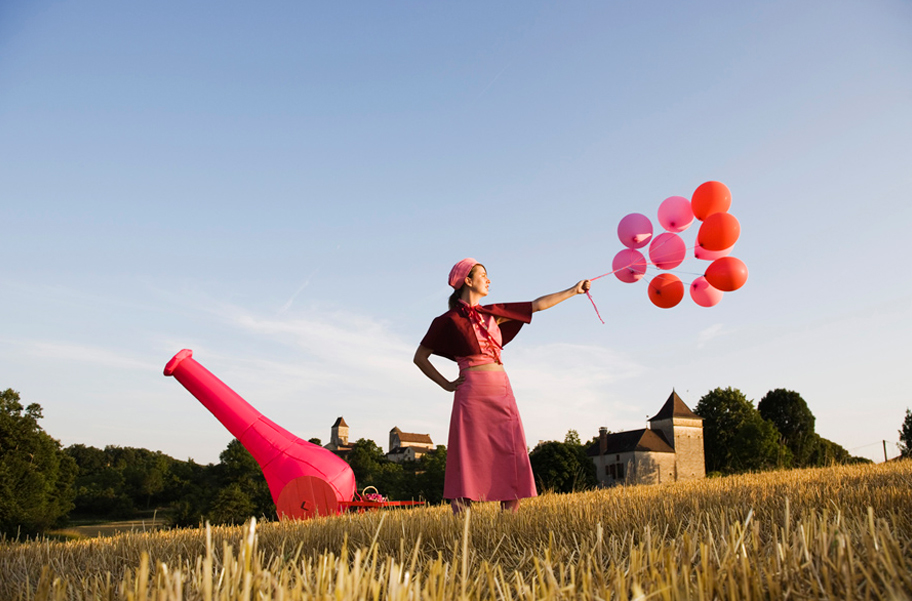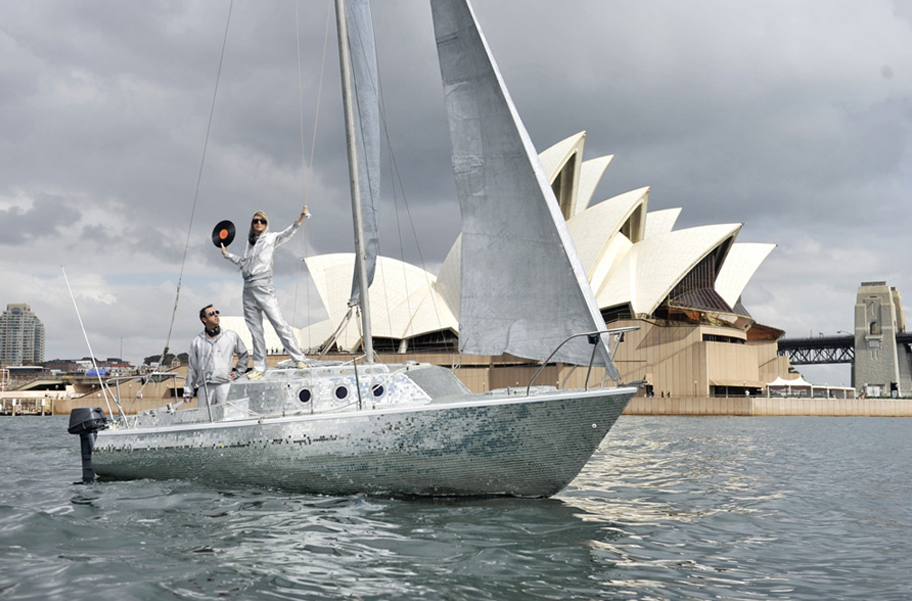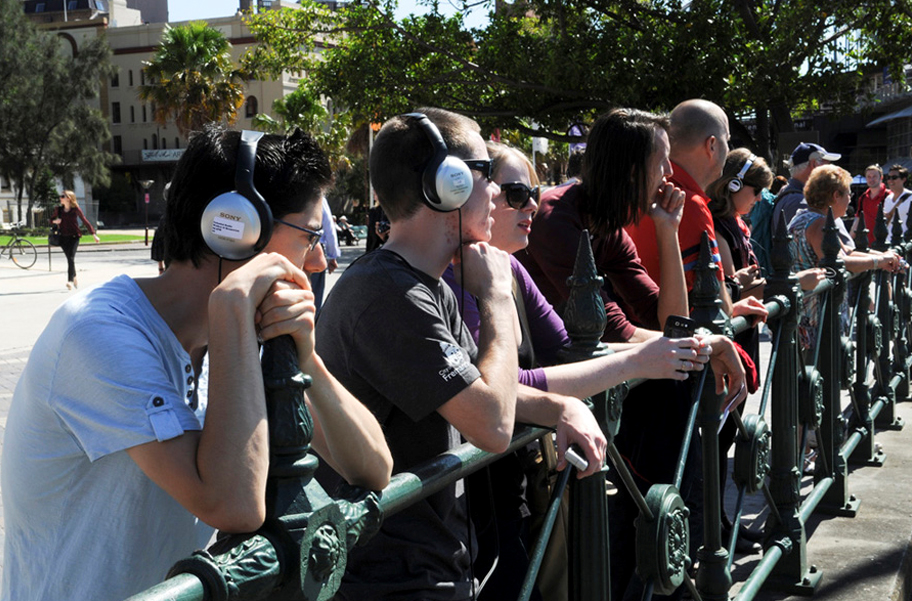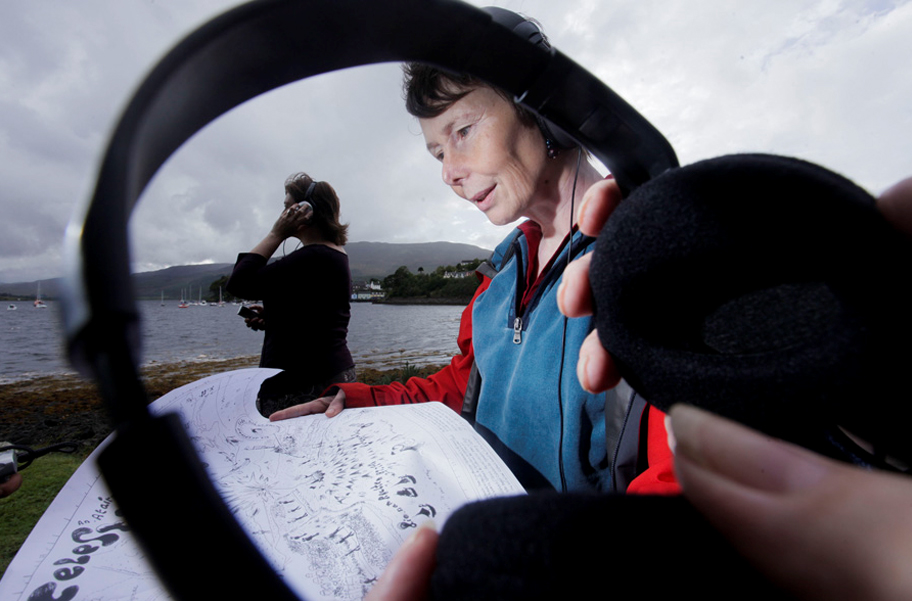A live performance that combined video documentation, presentation, puppetry, costumes and props, this cross-disciplinary and cross-institutional research project questioned notions of truth, faith and belief, and created debate at the forefront of socially engaged practice, particularly for those researching art and wellbeing in society.
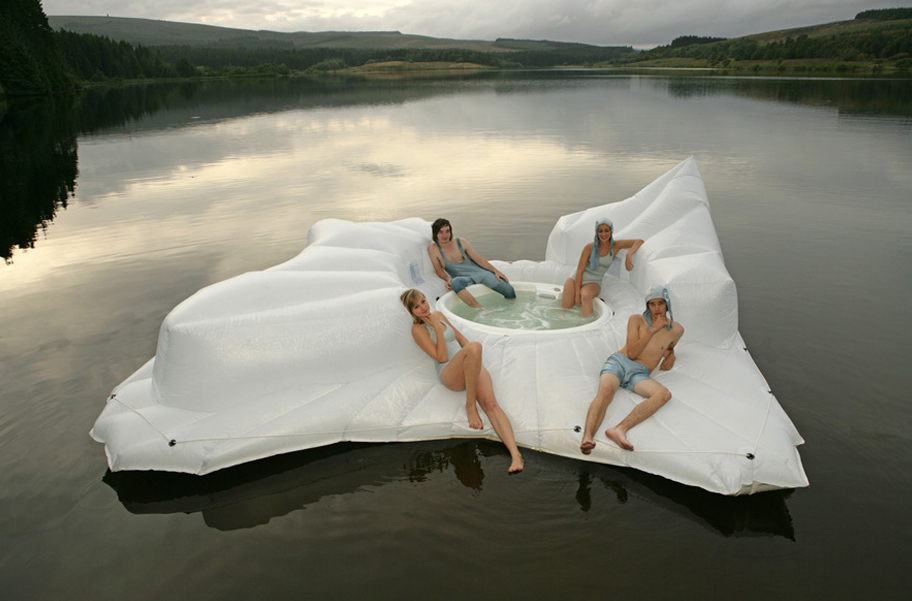
Artists Zoe Walker & Neil Bromwich, photograph Colin Gray/the Artists
Growing out of the critique surrounding the instrumentalisation of the arts and the increasing value placed on the perceived effect of art on public wellbeing, ‘Panacea Casebook’ was developed from an earlier large-scale project, ‘Panacea’. Here, the team ran a field trial using pharmaceutical drug tests systems to test the effect of art works on the wellbeing of audience members, exploring the qualitative and scientific assessment of art.
‘Panacea Casebook’ significantly extends this research by re-presenting ‘Panacea’s’ test results for critique in a live art performance. Developed over three stages, including a high-profile panel discussion at the ICA London, under the title ‘Can Art Make You Happy’ (with Nicolas Bourriaud, Sian Ede, Jane Wernick and Claire Doherty), and through a number of workshops, the project also incorporated original methodologies and approaches, bringing together genuine scientific research carried out on an artwork with fictionalised case studies, fake narratives, theatre and humor.
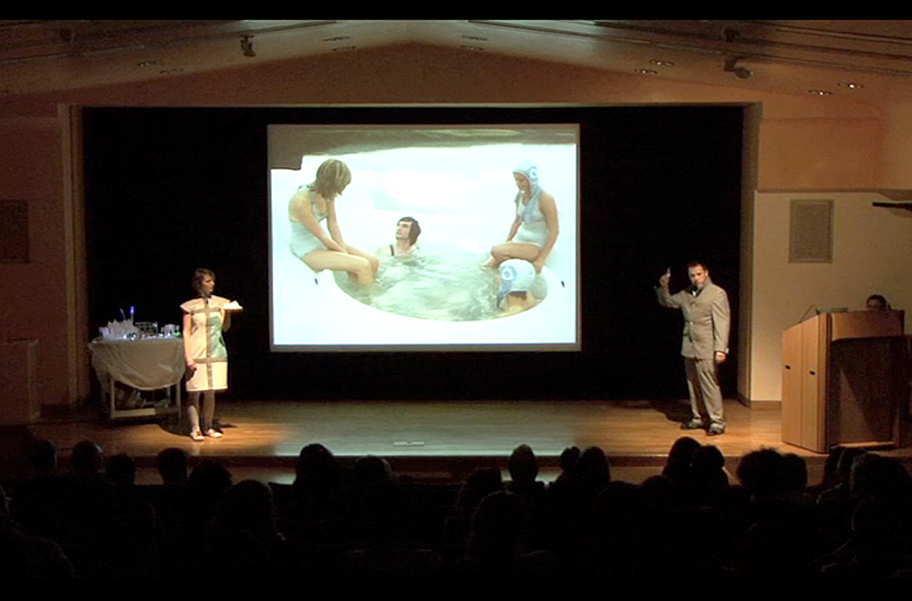
Artists Zoe Walker & Neil Bromwich, photograph Colin Gray/the Artists
Using ‘real’ works as a starting point, six fictionalized case studies were composed by the artists and imagined as a cure for a specific ailment resulting from an ‘urban malaise’. These case studies were then “narrativised” in collaboration with the medical team, and presented by the artists. Becoming more extreme over the course of the performance, though they remained believable, the case studies were contrasted with genuine scientific research delivered by the puppet doctor, manipulated and orated by Dr Mark Down (a Clinical Pharmacologist who is also a skilled puppeteer). This slippage between fact and fiction created a space for audience members to question their faith in science and art, while a questionnaire (adapted from stage two pharmaceutical drugs trialing) given out before and after the event challenged audiences to directly engage with their own state of wellbeing.
Toying with the idea of a ‘faux’ anthropological methodology and blurring art, fiction, scientific method and poetic interpretation, ‘Panacea Casebook’ presented new and innovative forms through which to express a complex understanding of the recent instrumentalisation of art practice, and explored the extent to which we trust in art and medical science to solve the ills of society.
‘Panacea Casebook’ was exhibited at five high profile galleries across the UK, including BALTIC Centre for Contemporary Art, Gateshead, CCA, Glasgow, Modern Art Oxford, Oxford and the John Hansard Gallery, Southampton. In 2010 the work was presented at Tate Britain as part of Going Public, a program of live events exploring truth and fiction.
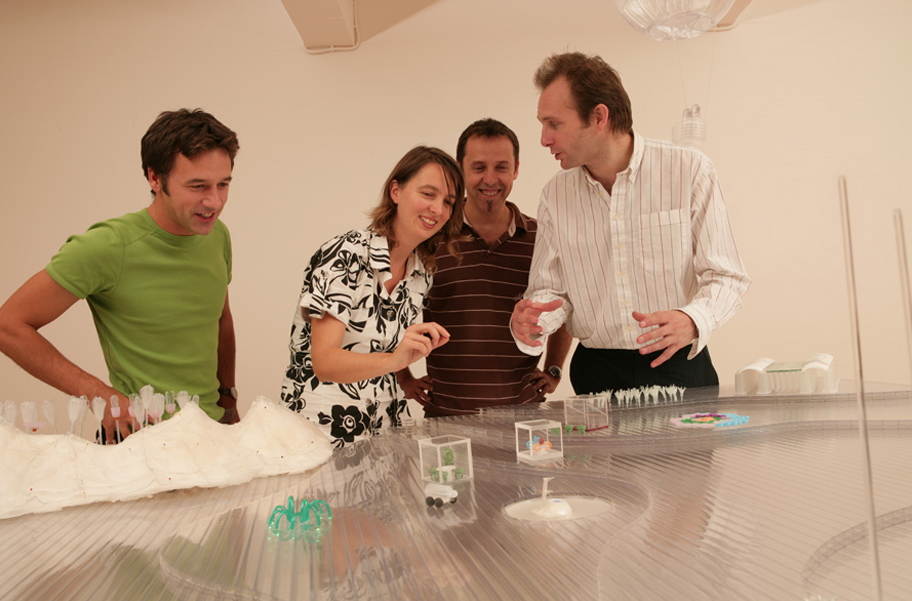
Artists Zoe Walker & Neil Bromwich, photograph Colin Gray/the Artists
The Panacea Research Team are: Neil Bromwich, Dr Mark Down (Clinical Pharmacologist, Hammersmith Medicines Research and Puppeteer, Blind Summit Theatre), Zoe Walker (Artist, University of Edinburgh) and Michael Pinsky (Artist, University of East London) with additional support from Professor Adrian Renton (Director of Institute for Health and Human Development, University of East London).
